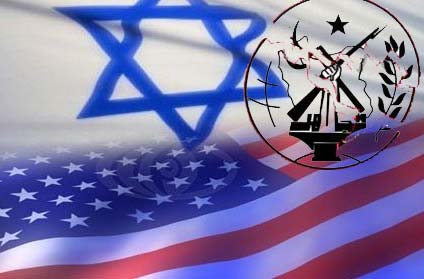Israel's main spy agency Mossad has openly acknowledged that it cooperated with the People's Mujahedin of Iran (MKO) terror group over a plot to implicate the Islamic Republic in what it said would be a bomb attack in Paris.
Mossad said it had worked with its Belgian, French and German counterparts to uncover an alleged cell that was planning to bomb a June 30 conference in the French capital organized by the MKO, Israeli website Headshot reported on Thursday.
According to the report, the cell was led by an Iranian diplomat based in the Austrian capital of Vienna. It was also consisted of two Belgian nationals and another alleged member in Paris.
All of the suspects, including the alleged diplomat and his wife, were arrested and charged with plotting the attack.
The MKO event went ahead as planned and was attended by some of the former US, European and Saudi officials, including former Saudi spy chief, Prince Turki al-Faisal, who also delivered a speech.
The Mossad claim puts Israel next to Saudi Arabia, which Tehran says has been colluding with the MKO and providing it with financial support since the Iraqi imposed war on Iran in the 1980s.
Out of the nearly 17,000 Iranians killed in terrorist assaults since the victory of Iran’s 1979 Islamic Revolution, about 12,000 have fallen victim to MKO’s acts of terror.
The US State Department listed the MKO as a “terrorist organization” in 1997 only to be removed from in 2012. The European Union dropped the terrorist categorization for the group in 2008.
Mossad’s alleged operation to protect the MKO occurred days ahead of a visit to Paris by Iran’s Foreign Minister Mohammed Javad Zarif's for a meeting with his European counterparts concerning the 2015 nuclear accord and its future.
On May 8, US President Donald Trump pulled America out of the accord – technically named as the Joint Comprehensive Plan of Action (JCPOA). It was an agreement between Iran and the P5+1 group of nations -- the US, Britain, France, China, Russia and Germany – the envisaged the removal of sanctions against Iran in return for Tehran’s moves to restrict certain aspects of its nuclear energy activities.
Trump's decision did not go down well with the other signatories but Israeli and Saudi officials have already expressed their satisfaction with the move.
In an attempt to convince Trump and his European allies (the EU3) to quit the JCPOA, Israeli Prime Minister Benjamin Netanyahu in a live televised presentation claimed that Israel had obtained access to what he described as "stolen" evidence that proved Iran's attempts to produce nuclear weapons. Iran strongly rejected Netanyahu’s allegations which it said were based on “unsubstantiated” evidence.
The Israeli premier tried to pull off a similar move ahead of Zarif's trip to Paris. During a speech in early July, he alluded to the alleged Mossad operation to protect the MKO.

